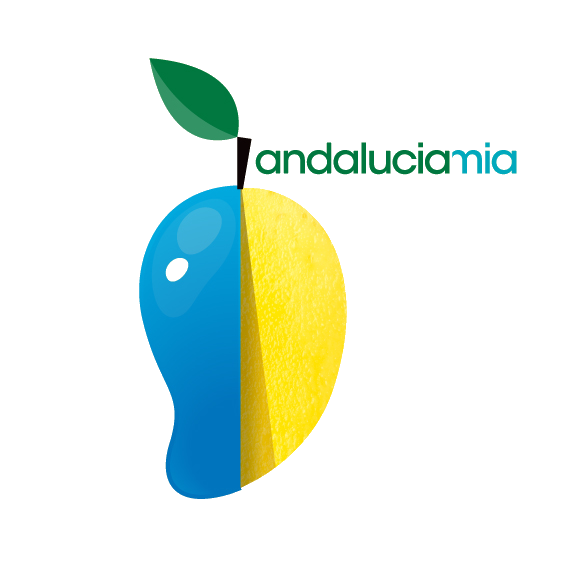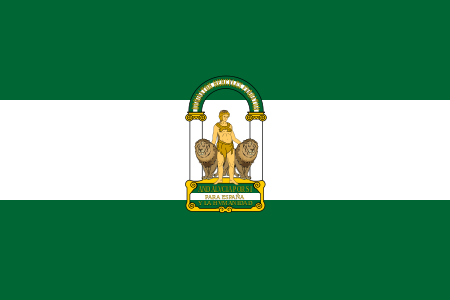Andalucia Day 28 February
February 28 in Andalucia is an important date
The Andalucia Day celebrates the autonomy of the province of Andalucia obtained on February 28, 1980.
The 28F, as Andalusian call it, is an opportunity for all of them to celebrate their attachment to their history, traditions and identity. On this day many white and green flags can be seen in front of houses. Children sing the Andalusian hymn in the schoolyard, and many cultural events are organized.
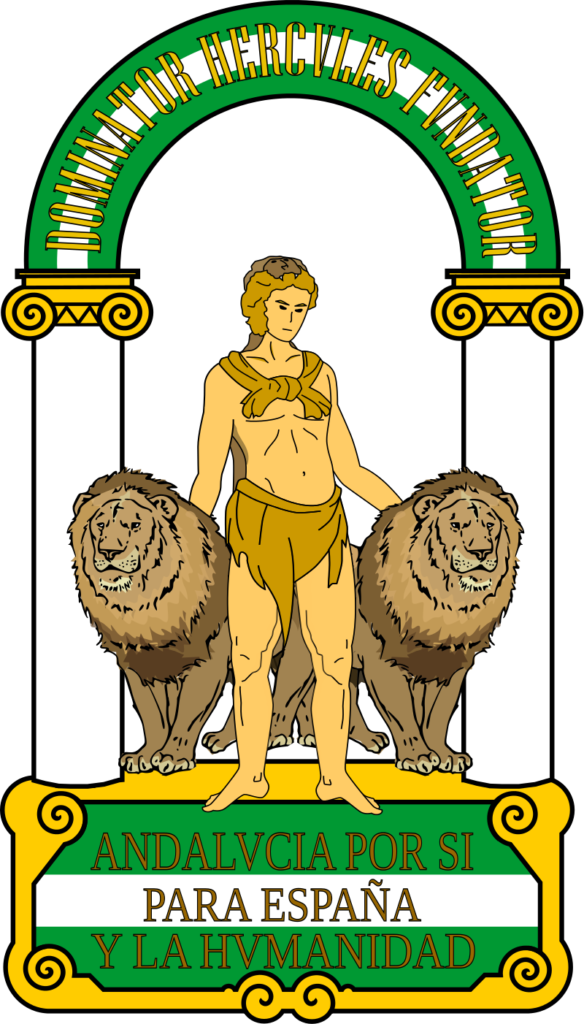
Américo Toledano)
Blans Infante , father of the Andalucian homeland
Blas Infante is recognized as the father of the “Andalucian homeland”, he is a famous politician and writer, born in Casares, in the Province of Malaga. He will be assassinated in 1936. Blas Infante is at the origin of the Andalucian coat of arms, flag and hymn (lyrics and music).
The flag of Andalucia
Symbolically, the green of the flag represents hope and the white peace. This green also refers to the Umayyads and white to the Almohads.
The hymn of Andalucia played during the Andalucia Day – 28 February
Here are the lyrics written by Blas Infante :
La bandera blanca y verde
vuelve, tras siglos de guerra,
a decir paz y esperanza,
bajo el sol de nuestra tierra.
¡Andaluces, levantaos!
¡Pedid tierra y libertad!
¡Sea por Andalucía libre,
España y la Humanidad!
Los andaluces queremos
volver a ser lo que fuimos
hombres de luz, que a los hombres,
alma de hombres les dimos.
¡Andaluces, levantaos!
¡Pedid tierra y libertad!
¡Sea por Andalucía libre,
España y la Humanidad!
And here is the interpretation of this hymn by one of the greatest Spanish actresses (nicknamed the taller, “la mas grande”, in a 1993 movie, “Lola se va por los puertos.”
This actress is Rocio Jurado . An actress and Spanish singer who sang in Carlos Saura‘s movies about the flamenco universe such as El amor brujo. Part of the film was shot on the famous La Caleta beach in Cadiz.
Some general information about Andalucia
- Andalucia is one of the 17 autonomous communities of Spain.
- The capital of Andalucia is Sevilla
- Andalusia’s motto: “Andalucía por sí, para España y la humanidad” (“Andalusia for itself, for Spain, for humanity”)
- The surface area of Andalucia is 87,000 km² (Spain: 505,000 km²)
- It has 8.5 million inhabitants in 2020 (Spain: 47 million inhabitants)
It is composed of 8 provinces: Malaga, Seville, Almeria, Cordoba, Jaen, Huelva, Granada and Cadiz.
Each province is made up of small regions called “comarca”. In the province of Malaga there are 9 comarcas :
- Comarca of Antequera
- La Axarquía
- Guadalteba
- Costa del Sol Occidental
- Málaga-Costa del Sol
- Comarca Nororiental de Málaga (Nororma)
- Valle del Guadalhorce
- Serranía de Ronda
- Sierra de las Nieves
The government of Andalusia is called: La Junta de Andalucia.
- Its President is the highest representative of the community of Andalucia.
- The autonomous community has a legislative assembly: the Parliament
- The Supreme Court of Justice is in Granada
Some useful links for your trip to Andalusia
Easy and economical bookings
Discover more of Andalusia’s beautiful sites in the Andalusia blog pages.
Here is the link to receive our blog newsletter.
Here are the latest articles on Andalucia
-
Interactive map of Andalucia with best places to see
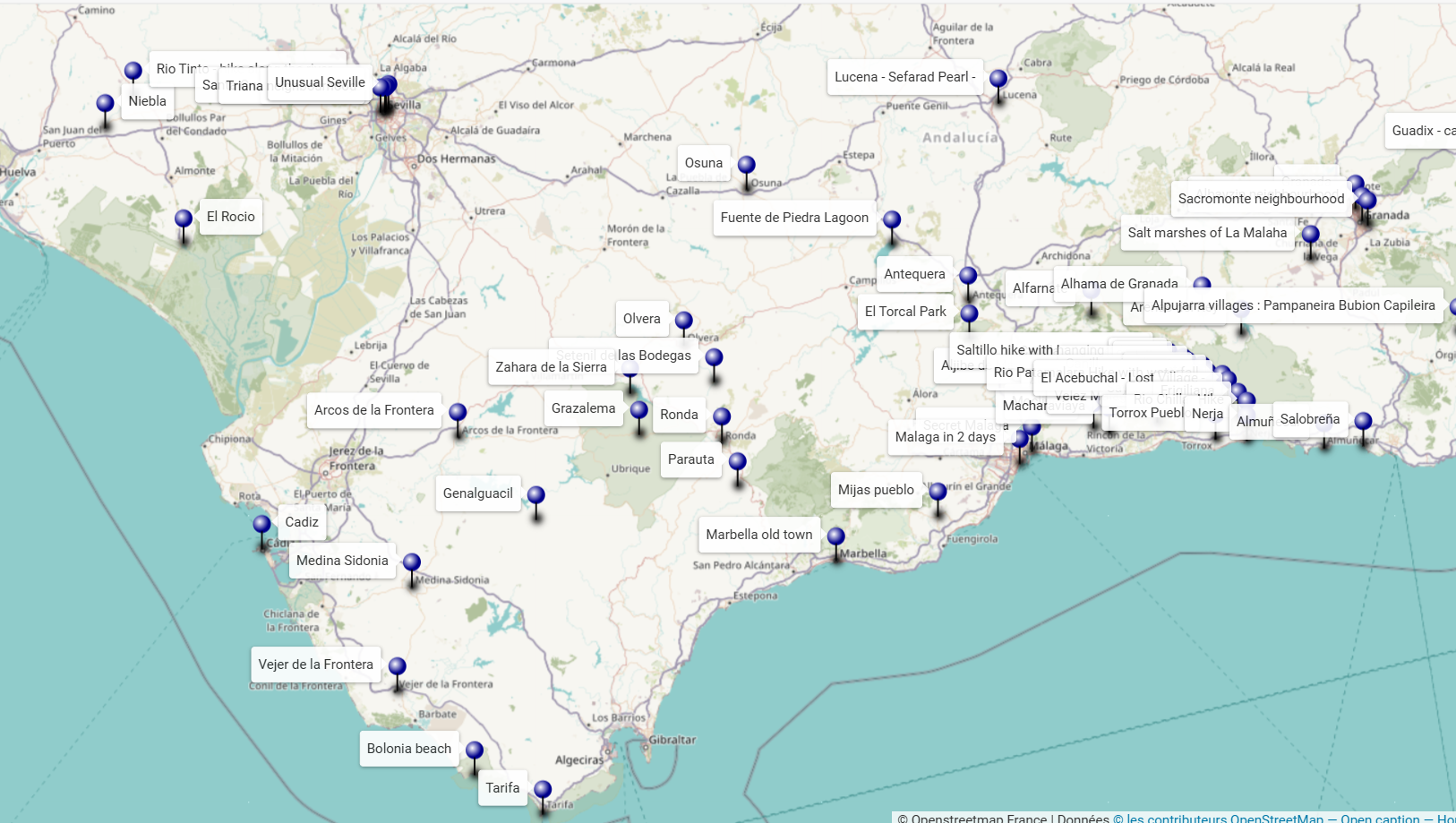
An interactive map of Andalucia to discover the sites to see around your holiday destination or to prepare a tour or road-trip.
-
Andalusia off the beaten track : 18 gems
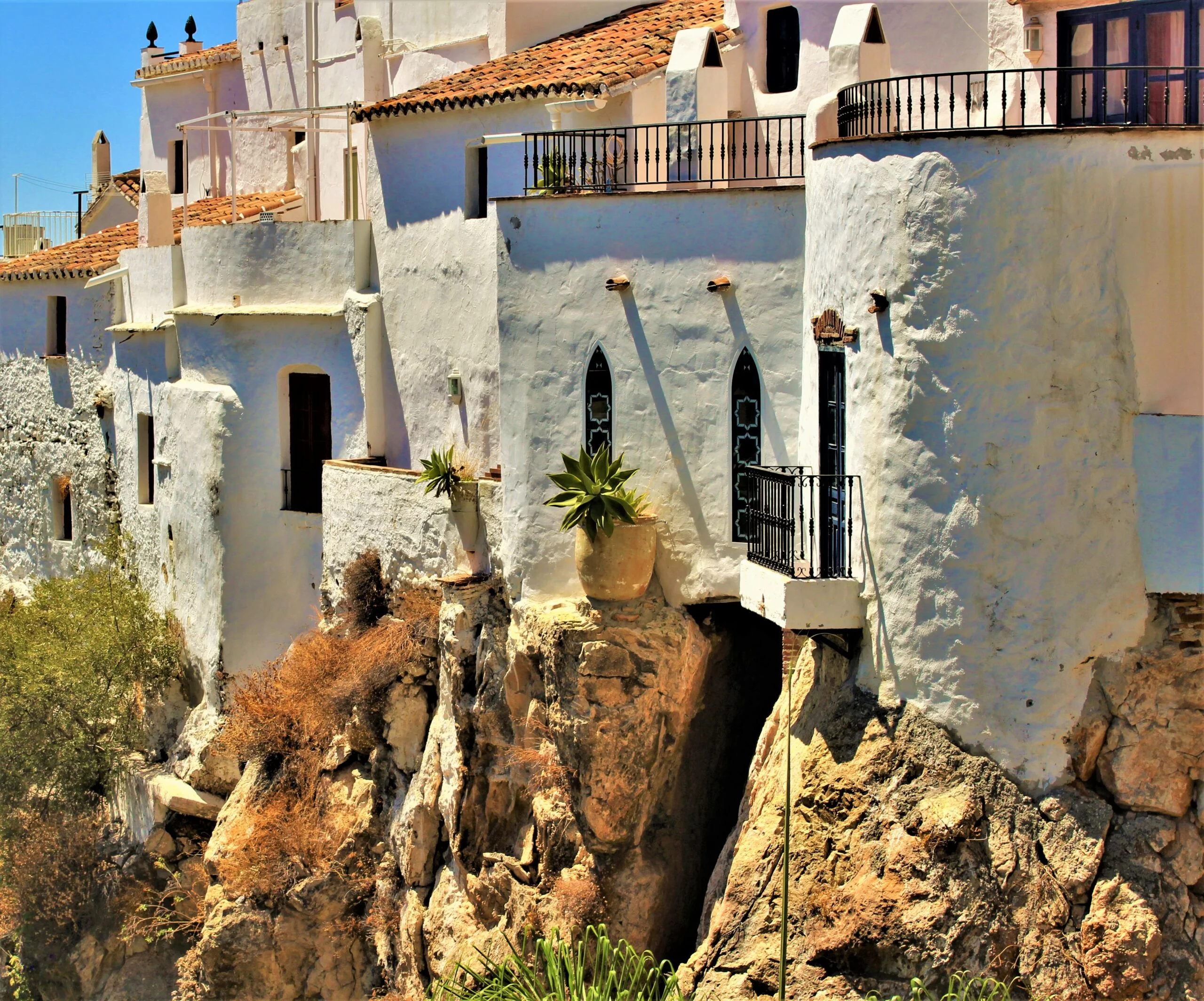
Let’s immediately set off to discover an Andalusia off the beaten track. There are many wonders to discover.
-
19 Most beautiful white villages in Andalusia
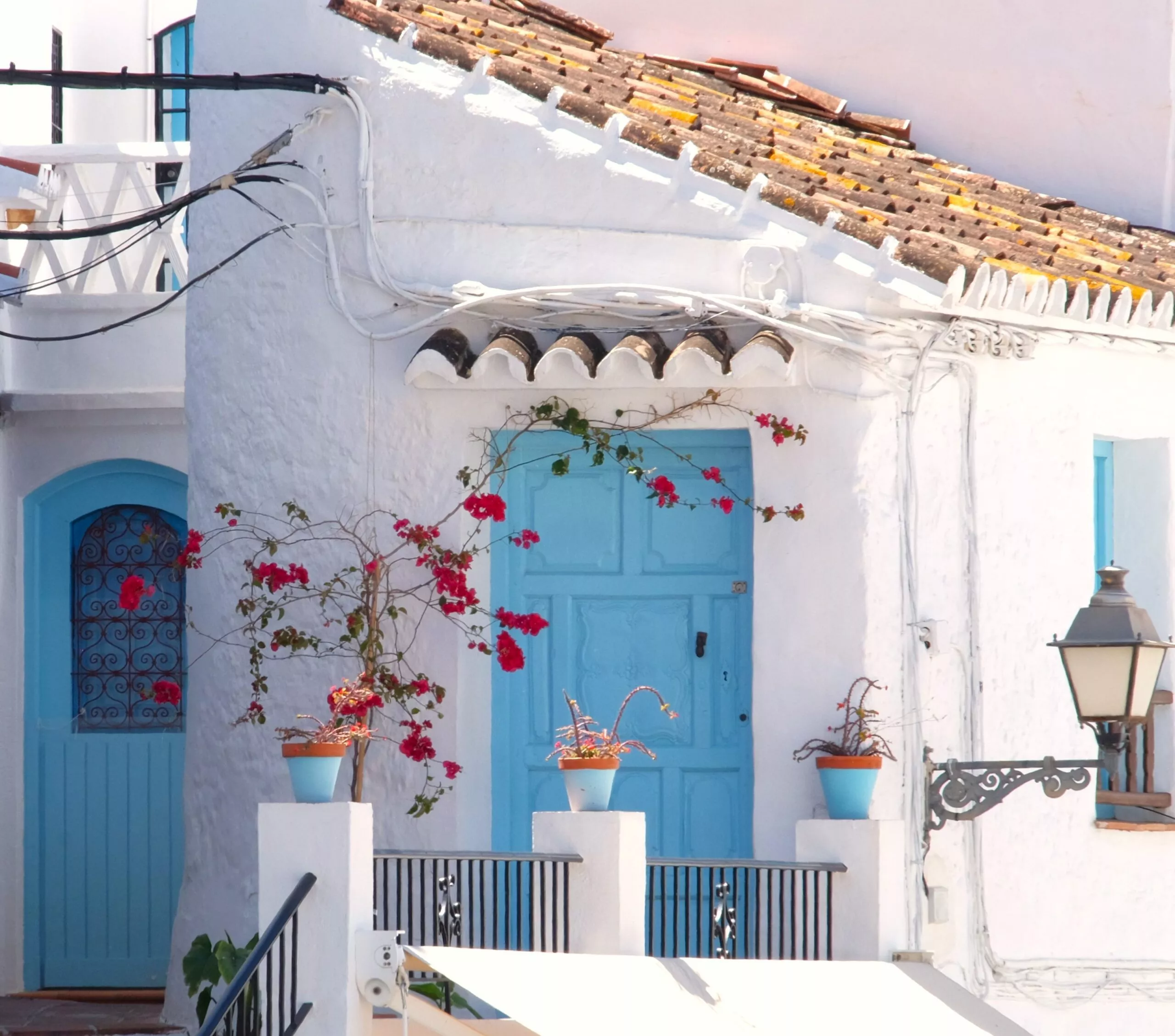
Discovering the most beautiful white villages of Andalusia. These villages are the only ones to be part of the Pueblos más bonitos de España.
-
Unusual Andalusia – 15 Very Surprising Places –
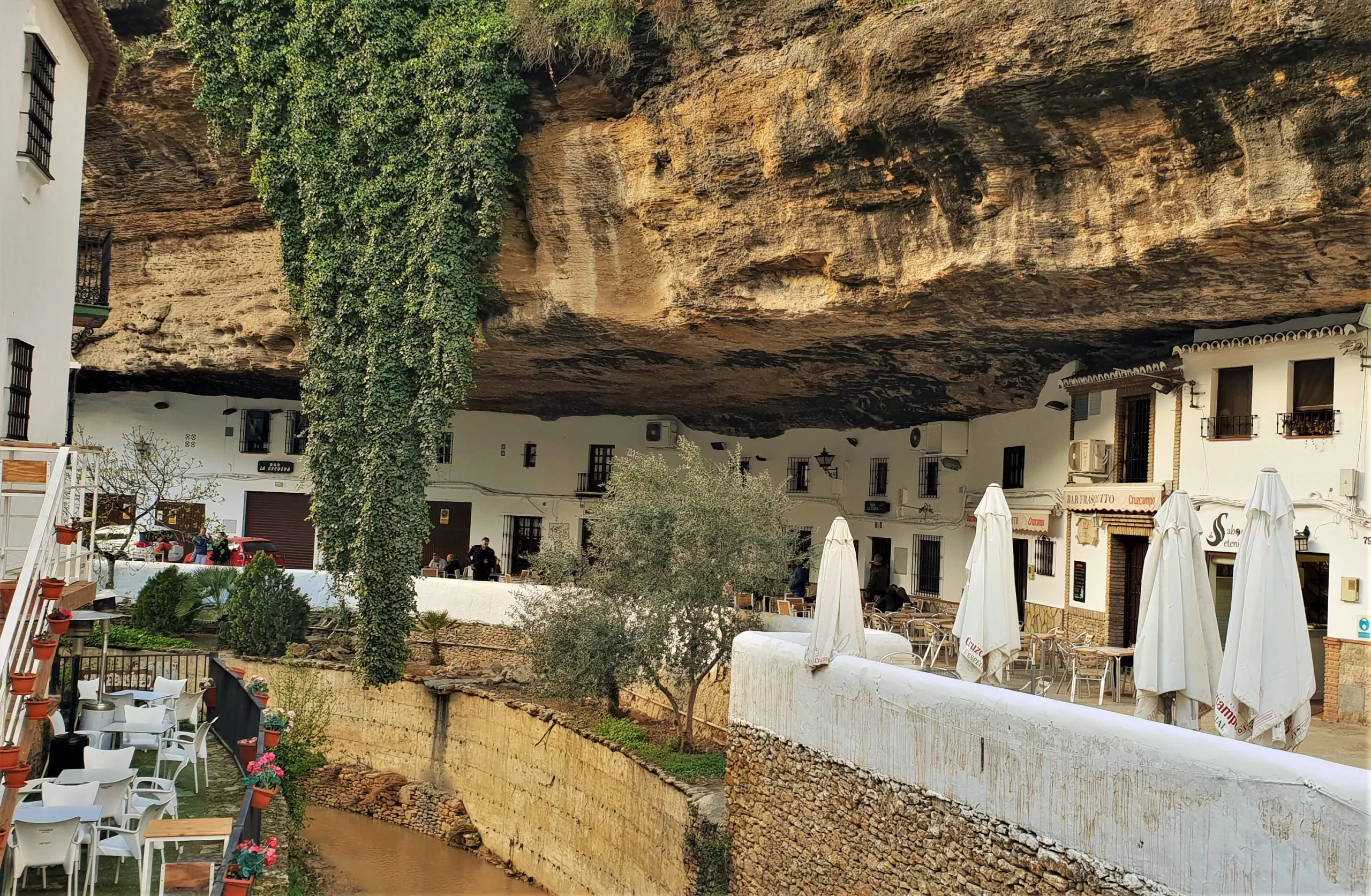
Unusual Andalusia: discover the most surprising and wonderful places in southern Spain.
